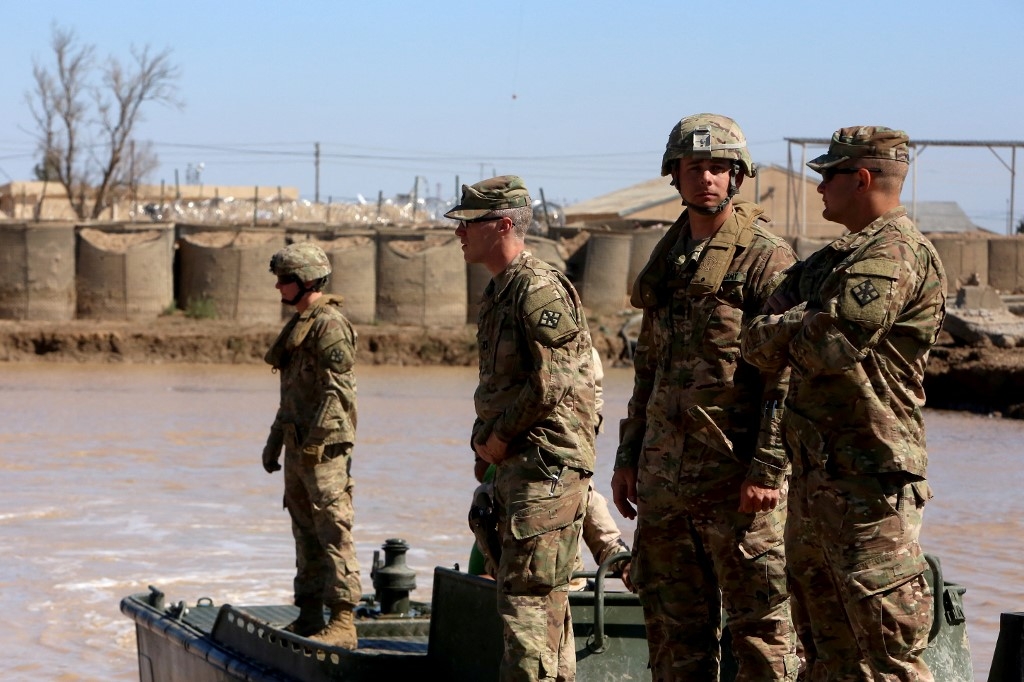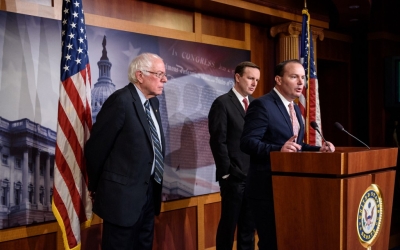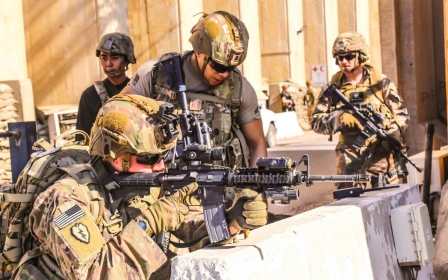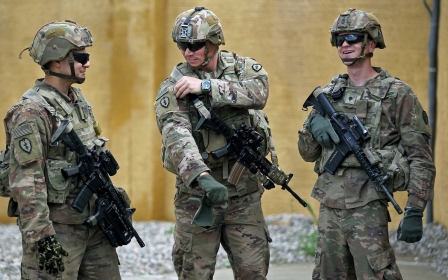US Senate panel votes to repeal Iraq war authorisations

The Senate Foreign Relations Committee advanced legislation on Wednesday that would repeal a pair of war authorisations related to Iraq, the latest congressional move aimed at limiting the president's ability to wage war.
The panel voted 14-8 on the bill, co-sponsored by Democrat Senator Tim Kaine and Republican Todd Young, which would repeal the 2002 authorisation for the use of military force (AUMF) that gave permission for the Iraq War. The bill would also repeal the 1991 AUMF that approved the Gulf War.
Republicans Rob Portman, Todd Young, and Rand Paul also joined with Democrats in support of the measure.
"Congresses of both parties have abdicated our responsibility regarding the power to declare war and allowed presidents of both parties to act unilaterally," Kaine said during a meeting for the bill prior to its vote.
"Congressional action to repeal these authorisations will represent a step toward Congress taking its most solemn responsibility seriously.
"Allowing outdated authorisations to persist in perpetuity invites the prospect of serious abuses in the future."
Since President Joe Biden launched air strikes on Iran-backed armed groups in Iraq and Syria this year, momentum has been building in Congress to repeal the decades-old war authorisations.
While Biden did not cite an AUMF to justify the strikes, the actions still ignited congressional efforts to repeal the authorisations.
In June, the House voted to repeal the 2002 and 1991 AUMFs, as well as a 1957 resolution that provided broader authorisation for military action in the Middle East.
Senate Majority Leader Charles Schumer has been in support of removing the authorisation and reiterated on Wednesday that he plans to bring a repeal of the 2002 AUMF to the Senate floor for a vote later this year.
The Biden administration has also been supportive of the move, with Deputy Secretary of State Wendy Sherman telling the Senate Foreign Relations Committee on Tuesday that "the 2002 authorisation for the use of military force against Iraq has outlived its usefulness and should be repealed".
The 2002 AUMF was cited as the legal justification by the Trump administration for the 2020 assassination of top Iranian general Qassem Soleimani.
2001 AUMF
Republican senators Ted Cruz and Bill Hagerty offered amendments on Wednesday that they argued would preserve the president's options to respond to threats from Iran and Iran-backed militias. Both, however, failed to pass.
Those lawmakers who support the decision to repeal the 2002 and 1991 measures are hoping it will lead to broader reform of the president's war powers, in particular a replacement of the 2001 AUMF that Congress passed hastily after the 9/11 attacks, which gives the president authority to strike the perpetrators of the attacks anywhere in the world.
The authorisation gave the president broad war powers, and progressive advocates and lawmakers have for years been calling for revoking the 2001 measure.
A report published last year by Brown University claimed that at least 37 million people, mostly civilians, had been displaced from Afghanistan; Iraq; Pakistan; Yemen; Somalia; the Philippines; Libya; and Syria - countries largely targeted by America's two-decade "war on terror".
Last month, Senators Chris Murphy, Bernie Sanders, and Mike Lee introduced wide-ranging legislation aimed at curbing the president's authority to issue arms sales, send troops into combat, and declare national emergencies without congressional approval.
However, Senator Ben Cardin expressed concern about similar fights ahead against the 2001 AUMF, saying he expects the State and Defence departments to seek a "blank check".
"I think we're going to have an extremely difficult time with the lawyers at Defense and State as we look to replace the 2001 authorisation," he said on Wednesday.
Middle East Eye propose une couverture et une analyse indépendantes et incomparables du Moyen-Orient, de l’Afrique du Nord et d’autres régions du monde. Pour en savoir plus sur la reprise de ce contenu et les frais qui s’appliquent, veuillez remplir ce formulaire [en anglais]. Pour en savoir plus sur MEE, cliquez ici [en anglais].





